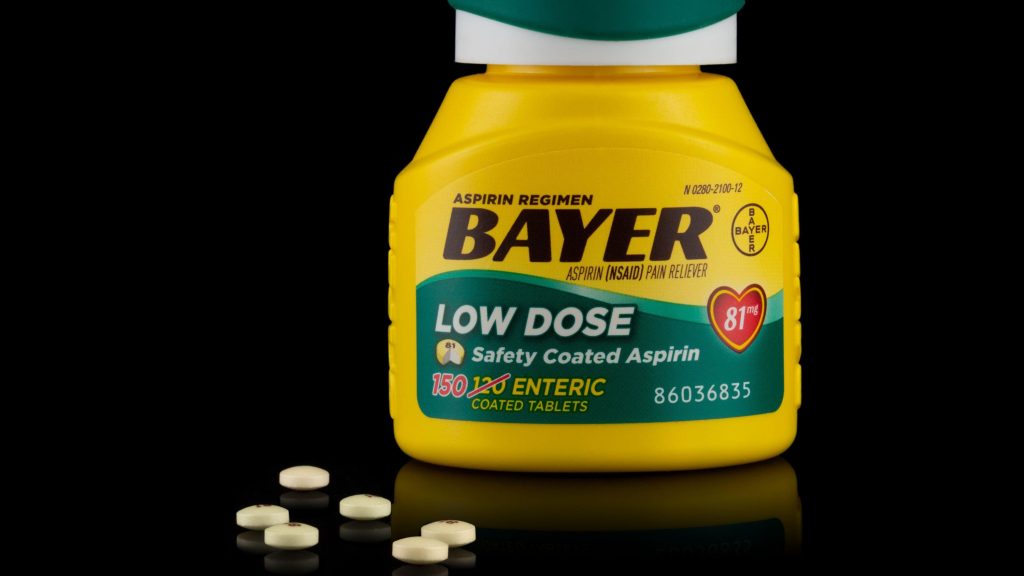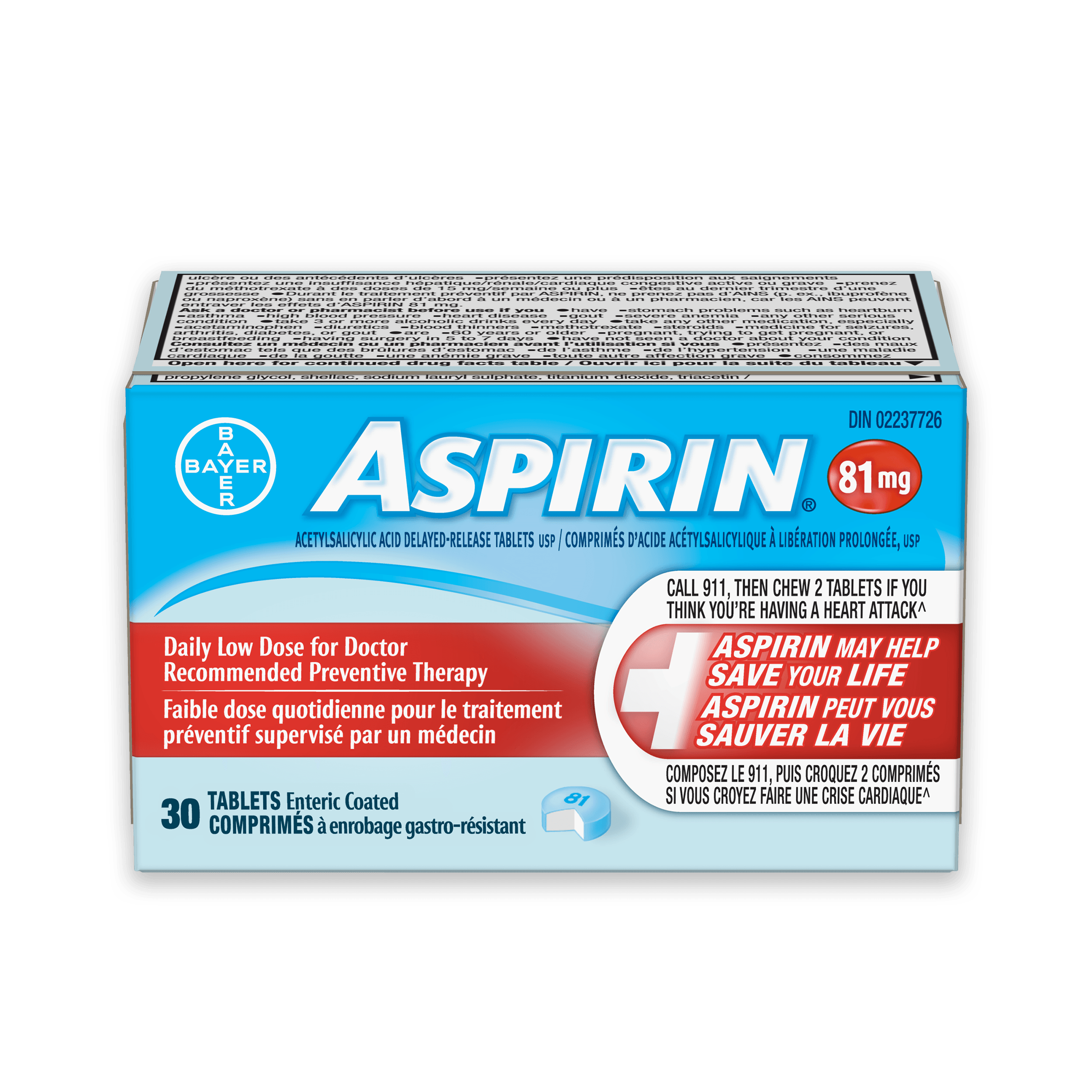Aspirin Heart Attack Guidelines – Doctors and health experts have been recommending aspirin as a pain reliever for more than 100 years. But, in the last 50 years, it has also been used to prevent and manage heart diseases, including stroke.
Recently, a top United States panel of health experts has published a new set of guidelines or recommendations that aim to limit the use of aspirin to prevent a first heart attack or stroke.
There is no doubt that aspirin has a huge number of benefits, including preventing strokes and heart attacks. But it is not like anyone can probably use aspirin to prevent stroke and heart attack.
Latest Aspirin Heart Attack Guidelines
The United States preventive service task force, which is an independent panel of experts in disease prevention and evidence-based medicine, Has published its final recommendations.
Back in 2021, the same group or independent panel of experts released a drafted version of proposed changes in the use of aspirin to lower the risk of heart attack and stroke. After getting the feedback and comment from the public now, they have updated its final recommendations.
- As per the latest set of guidelines, people older than 60 should not start taking aspirin to prevent their first heart attack or stroke.
- They are more vulnerable to internal bleeding due to aspirin which can be a life-threatening condition, and it does not outweigh the benefits of taking aspirin with the side effects.
- People between the age of 40 to 59 who are at higher risk of heart disease or stroke but don’t have any history of either condition should consult about taking aspirin with their doctor.
- Now nobody is free to start taking aspirin as a preventive step.
The above-given updated recommendations are not for everyone. The United States preventive service task force has already made it clear that you should consult your doctor if you already have heart disease, stroke, or are already taking aspirin.
You should not stop taking aspirin if you have had a heart attack or stroke just because The United States preventive service task force has told you. It could be a deadly step, and you should consult with your doctor before taking any step like that.

Why has the USPSTF changed Aspirin heart attack guidelines?
Now you might ask if aspirin is very good medicine to prevent heart attacks and strokes, then why did the United States preventive service task force update its guidelines?
The task force had a meeting on the same topic in 2016, and they recently Reconvened to discuss the role of low dose aspirin to prevent heart diseases, including attacks and stroke.
- The new recommendation came to light well. Recent studies prove that taking low-dose aspirin for primary prevention of heart attack and stroke in adults over the age of 60 has no clear benefits.
- It means the benefits of taking aspirin were not overweighting the side effects in people above the age of 60.
- At the same time, adults between the ages of 40 to 59 who have a ten-year ASCVD Risk of 10% or higher may have a small benefit from taking low-dose aspirin daily.
Alternatives of Aspirin Heart Attack Guidelines
As per the doctor United States preventive service task force, rather than taking low dose aspirin daily, your doctor should recommend you a few lifestyle changes which will lower the risk of heart diseases, including stroke and attack.
- First of all, you should adopt a healthy heart diet. It means you should reduce the intake of processed meat, processed food items, fast food, sugary beverages, and baked goods.
- At the same time, you should include fruits, non-starchy vegetables, low-fat dairy, seafood, lean meat, and nuts in your diet.
- Apart from that, you should also start doing exercise regularly. You should follow 150 minutes of weekly exercise divided into five to six days.
- At the same time, monitoring your cholesterol levels and blood pressure will also help you prevent any heart disease, including stroke and attack.
- Lastly, you should manage your diabetes and control your smoking habits which will further help you maintain your heart health and lower the chances of heart disease.
Who is eligible to take aspirin according to new guidelines?
Now you might ask if everyone has been eliminated from taking aspirin to prevent heart diseases?
The clear answer is no. As for the latest aspirin heart attack guidelines released by the United States preventive service task force, there are a few people who have not been prevented from taking aspirin to lower the risk of heart attack and stroke.
If your doctor has already recommended you to take a low dose of aspirin to prevent any further heart attack or stroke, or if you are known to have heart disease, then you are eligible to keep taking the aspirin.
It is not primary prevention of heart disease but secondary prevention of heart disease. The latest guidelines are for the primary prevention of heart disease.
If you do not have any history of heart disease, but you fall in the age category of 40 to 59 years, then your doctor might recommend you to take low dose aspirin to prevent heart disease if you have at least 10% or higher risk of heart disease.
How does aspirin prevent a heart attack?
Before we wrap this session, let’s take a look at how aspirin is going to help you prevent a heart attack.
As you are already aware, when we bleed, our body has a coping mechanism by creating clots of blood to repair that wound that is bleeding.
But, clotting can occur within the vessels that carry blood to the heart, which is a deadly thing. Fat deposits in the arteries narrow the blood flow, and clot Can further prevent the blood flow to the heart and it causes a heart attack because your Hertz has to work harder than ever before.
Aspirin can interfere with the clotting action of blood. It has blood-thinning capabilities, Which can help you if your body is forming clots without need. Apart from that, it can also ease inflammation in the heart, which will further lower the possibilities.
But, no matter what, you should never start taking aspirin to lower the risk of heart disease as it also contains a huge list of side effects.
As per the latest aspirin heart attack guidelines, sometimes the benefits of taking aspirin might not outweigh the side effects, which can cause life-threatening situations.
This number of people experience severe nausea and vomiting after taking aspirin, and there is a high probability that you might see blood in your urine and stool at the same time.
A huge number of studies have already proven that you might experience unusual bruising if you are taking aspirin which can cause heavy bleeding from any cut.
Takeaways
Now the use of aspirin to lower the risk of heart diseases as a but mostly measure is at its peak. Doctors have been suggesting every eligible person start taking aspirin to lower the risk of heart attack and stroke.
But, now the United States preventive service task force has updated its aspirin heart attack guidelines. As per the latest set of guidelines, nobody above the age of 60 is eligible to take aspirin to lower the risk of heart disease. If you don’t have any heart disease history, such as heart attack or stroke, then you should avoid taking aspirin.
At the same time, people between the ages of 40 to 59 With a risk of heart disease lower than 10% should not take aspirin as a precautionary measure. Instead, everyone should make a few changes in their lifestyle, which have more effect than aspirin.
Aspirin contains a huge risk of side effects, but those lifestyle changes which have similar benefits do not contain any risk of side effects. First of all, you should start eating healthy.
At the same time, you should introduce at least 150 minutes a week of exercise to your lifestyle. Lastly, you should monitor your blood cholesterol and blood pressure levels regularly.
I was recommended aspirin a few months back to lower the chances of heart disease. Should I stop taking it?
If you are already taking aspirin to lower the chances of heart disease, then you should consult with your doctor before stopping it. You cannot take your body off the medicine in just one day as there should be a plan recommended by your doctor.
